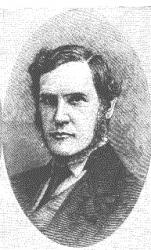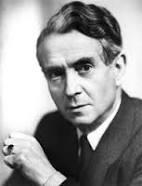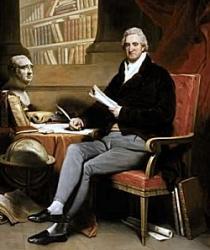Planning worship?
Check out our sister site, ZeteoSearch.org,
for 20+ additional resources related to your search.
- |
User Links
Person Results
William Henry Gladstone

1840 - 1891 Person Name: William Henry Gladstone, 1840-1891 Scripture: Psalm 78:9 Composer of "OMBERSLEY" in Singing the Faith Born: June 3, 1840, Hawarden, Flintshire, Wales.
Died: July 4, 1892, Westminster, London, England.
Eldest son of British prime minister William Gladstone, William attended Eton College and read Greek and Latin at Christ Church College, Oxford University. A Member of Parliament for a total of 20 years, representing Chester for 3; Whitby, Yorkshire for 12; and East Worcestershire for 5. A singer and organist, he was well versed in musical history, especially the development of Anglican church music. He wrote on musical topics, and one of the views he expressed was that choral church services were to be deplored because "the choirs often discourage the congregations from singing." He wrote the anthems "Gracious and Righteous" and "Withdraw Not Thou", & chants, anthems, introits & organ voluntaries. His works include:
A Selection of Hymns and Tunes, 1882
--www.hymntime.com/tch/
William Henry Gladstone
Herbert Howells

1892 - 1983 Person Name: Herbert Norman Howells, 1892-1983 Scripture: Psalm 78:7 Composer of "MICHAEL" in Singing the Faith
Herbert Howells
William Roscoe

1753 - 1831 Scripture: Psalm 78:5-6 Author of "God, the nation's guardian" in Hymnal of the Methodist Episcopal Church Roscoe, William, the father, was born March 8, 1753, in Liverpool, of humble origin. After very meagre schooling, and three years of work in his father's market garden, he was articled to an attorney, and subsequently practised in Liverpool till 1796, when he withdrew from the profession. From the first literature was his chief delight, and throughout a long career of public usefulness he united its pursuit with the efforts of enlightened patriotism and the advocacy of higher education and reform. Liverpool was a centre of the old slave-trade, and Roscoe was one of the first to raise his voice against the iniquity. At the age of 20 he had already uttered a protest in his descriptive poem Mount Pleasant, and in 1787 he published a longer poem, The Wrongs of Africa (Pt. ii. 1788), devoted to the subject. During his brief parliamentary experience as member for Liverpool, in 1807, he had further opportunity of advocating the cause of liberty and humanity. His first great historical work, the Life of Lorenzo dé Medici, was published in 1796, and the Life and Pontificate of Leo the Tenth, in 1805. After withdrawing from his legal practice, Roscoe had hoped to be able to devote himself entirely to letters, but the claims of friendship induced him in 1800 to enter into a banking business, which involved him in commercial troubles, ending in 1820 in his bankruptcy. His library had to be sold, but part of it was bought by friends, and presented to the Liverpool Athenæum, which in 1789 Roscoe had been instrumental in founding. In 1822 he published Illustrations of the Life of Lorenzo dé Medici, defending the views adopted in his former history, and two years later edited a new edition of Pope's works, with a life of the poet. He died June 30, 1831. (Cf. The Life of William Roscoe, by his son, Henry Roscoe, in 2 vols., London, T. Cadell, 1833.)
As a member of the congregation of Unitarians meeting in Renshaw Street Chapel, Liverpool, Roscoe took part in preparing A Selection of Psalms and Hymns for Public and Private Worship, printed for their use in 1818. He contributed eight hymns and the concluding anthem. Of these hymns the following are in common use at the present time:—
1. Let our loud song of praise arise. Praise.
2. Go, suffering habitant of earth. Life, a Warfare.
3. Great God, beneath Whose piercing eye. Divine Providence.
4. Thus said Jesus, Go and do. Love to our Neighbour.
5. What is the first and great command ? The Commandments.
These hymns are in several Unitarian collections, including Martineau's Hymns, 1840. No. 3 was written in 1788, as a "secular hymn" of ten stanzas, to be sung at the Benn's Garden Chapel on the Centenary of the Revolution.
--John Julian, Dictionary of Hymnology (1907)
William Roscoe
Katherine Davis

1892 - 1980 Person Name: Katherine K. Davis Scripture: Psalm 78:14 Author of "Let All Things Now Living" in Trinity Hymnal (Rev. ed.) Katherine Kennicott Davis (b. St. Joseph, MO, 1892; d. Concord, MA, 1980) studied at Wellesley College, Wellesley, Massachusetts, where she was also a teaching assistant in music. From 1921 to 1929 she taught singing and piano in private schools in Concord, Massachusetts, and Philadelphia, Pennsylvania. After 1929 she devoted herself largely to music composition. She wrote some eight hundred pieces, most of which were choral (often writing under several pseudonyms). One of her most popular songs is "The Little Drummer Boy," originally called "Carol of the Drum" (1941). Her other publications include the folk operetta Cinderella (1933) and Songs of Freedom (1948).
Bert Polman
Katherine Davis
Elizabeth Lee Smith
1817 - 1898 Scripture: Psalm 78:7 Translator of "I Greet Thee, Who My Sure Redeemer Art" in Glory to God Smith, Elizabeth Lee, née Allen, daughter of Dr. W. Allen, President of Dartmouth University, was born in 1817, and married in 1843 to Dr. H. B. Smith, who became Professor in Union Theological Seminary, New York, in 1850, and died in 1877. Mrs. Smith's hymns, including translations of "Je Te salue", “O Jesus Christus", are in Schaff's Christ in Song, 1869 and 1870. [Rev. F. M. Bird, M.A.]
--John Julian, Dictionary of Hymnology (1907)
According to the Canterbury Dictionary of Hymnology, Elizabeth Lee Smith passed away in 1898.
"Elizabeth Lee Smith." The Canterbury Dictionary of Hymnology. Canterbury Press. Web. 19 Apr. 2018. http://www.hymnology.co.uk/e/elizabeth-lee-smith.
Elizabeth Lee Smith
William Moore
1790 - 1850 Scripture: Psalm 78:23-25 Composer (attributed to) of "HOLY MANNA" in Sing a New Creation William B Moore USA 1790-1850. He was born, possibly in TN. He was a composer, having contributed tunes to” Wyeth’s Repository” (1810) and known for his tunebook “Columbian Harmony” (1825) in TN. He also composed and arranged several tunes in William Walker’s “Southern Harmony” (1835).
John Perry
William Moore
Michael Capon
b. 1963 Scripture: Psalm 78:23-25 Arranger (refrain) of "HOLY MANNA" in Sing a New Creation
Michael Capon
N. F. S. Grundtvig

1783 - 1872 Person Name: Nikolai F. S. Grundtvig, 1783-1872 Scripture: Psalm 78:1-7 Author of "God's Word Is Our Great Heritage" in Christian Worship Nicolai Frederik Severin Grundtvig was the son of a pastor, and was born at Udby, in Seeland, in 1783. He studied in the University of Copenhagen from 1800-1805; and, like some other eminent men, did not greatly distinguish himself; his mind was too active and his imagination too versatile to bear the restraint of the academic course. After leaving the university he took to teaching; first in Langeland, then (1808) in Copenhagen. Here he devoted his attention to poetry, literature, and Northern antiquities. In 1810 he became assistant to his father in a parish in Jutland. The sermon he preached at his ordination, on the subject "Why has the Lord's word disappeared from His house," attracted much attention, which is rarely the case with "probationers'" sermons. On his father's death, in 1813, he returned to Copenhagen, and for eight years devoted himself mainly to literature. The poetry, both secular and religious, that he produced, drew from a friend the remark that "Kingo's harp had been strung afresh." In 1821 King Frederik vi. appointed him pastor of Prasloe, a parish in Seeland, from which he was the next year removed to Copenhagen, and made chaplain of St. Saviour's church in Christianshavn. From the time of his ordination he had been deeply impressed with Evangelical church sentiments, in opposition to the fashionable Rationalism and Erastianism of the day; and adhered to the anti-rationalist teaching of Hauge, whose death at this time (1824) seemed to be a call to Grundtvig to lift up his voice. An opportunity soon presented itself; Professor Clausen brought out a book entitled Katholicismens og Protestantismens Forfatning, Ldre, og Ritus ("The condition, teaching, and ritual of Catholicism and Protestantism"). This book was replete with the Erastian Rationalism which was so especially distasteful to Grundtvig, who forthwith, in his Kirkens Gjenmsele ("The Church's Reply," 1825), strongly opposed its teaching, and laid down truer principles of Christian belief, and sounder views of the nature of the Church. This caused a sensation: Grandtvig (who had not spared his opponent) was fined 100 rixdollars, and the songs and hymns which he had written for the coming celebration of the tenth centenary of Northern Christianity were forbidden to be used. On this he resigned his post at St. Saviour's, or rather was forced to quit it by a sentence of suspension which was pronounced in 1826, and under which he was kept for 13 years. He took the opportunity of visiting England in 1829, 30, and 31, and consulting its libraries, mainly with a view to a further insight into Northern antiquities, and to help his studies in the early English tongue. His edition of Cynewulfs beautiful poem of the Phenix from the Codex Exoniensis, the Anglo-Saxon (so-called) text, with a preface in Danish, and a fri Fordanskning (free rendering in Danish), published in 1840*, is a result of this journey and enforced leisure. Tired of his long silence, his numerous friends and admirers proposed to erect a church for him, and form themselves into an independent congregation, but this was not permitted. He was allowed, however, to hold an afternoon service in the German church at Christianshavn. There ho preached for eight years, and compiled and wrote his hymn-book, Sang-Vdrk til den Danske Kirkce ("Song-work for the Danish Church"). He still worked on towards his object of raising the Christian body to which ho belonged from the condition of a mere slate establishment to the dignity of a gospel-teaching national church. In 1839 (the year of the death of King Frederik vr., and the accession of his cousin Chrisliem vni.) the suspension was removed, and he was appointed chaplain of the hospital Vartou, a position which he held till his death. In 1863 the king (Frederik vn.) conferred on him the honorary title of bishop. The good old man died suddenly, in his 89th year, on Sept. 2, 1872, having officiated the day before. As Kingo is the poet of Easter, and Brorson of Christmas, so Grundtvig is spoken of as the poet of Whitsuntide.
--John Julian, Dictionary of Hymnology,, p. 1001 (1907)
N. F. S. Grundtvig
Ole G. Belsheim
1861 - 1925 Scripture: Psalm 78:1-7 Translator of "God's Word Is Our Great Heritage" in Christian Worship Ole G. Belsheim was born on August 26, 1861 in Vang, Valdres, Norway. He emigrated to America with his family when he was just 5 years old. He attended Luther College, Decorah, Iowa; Northfield Seminary; and Augsburg Seminary, Minnesota. He served as pastor in Milwaukee, Wisconsin; Albert Lea, Minnesota; Grand Meadow, Minnesota; and Mandan, North Dakota and Trinity Evangelical Lutheran Church in Bismarck, North Dakota (1908-15). He was also a member of the committee that produced The Lutheran Hymnary in 1913 and served as editor for Christian Youth for two years. He died on February 13, 1925 in Dickinson, North Dakota.
NN, Hymnary. Source: http://www.hymntime.com/tch/bio/b/e/l/belsheim_og.htmvv
Ole G. Belsheim


 My Starred Hymns
My Starred Hymns


